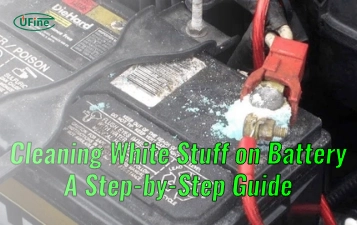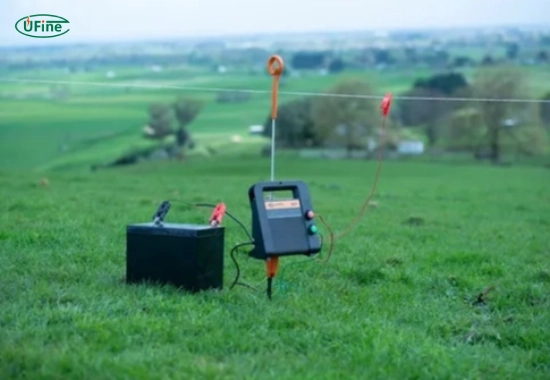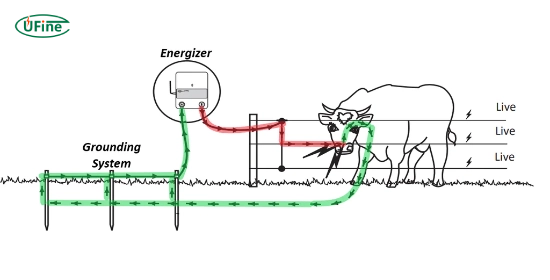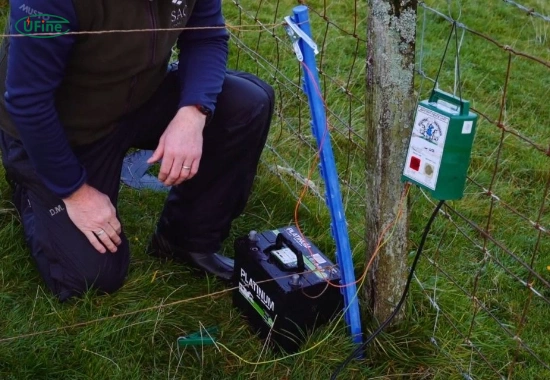Keeping your property secure with an electric fence is smart, but it won’t work without the right power source. Selecting the best electric fence battery is one of the most important decisions when setting up your system. The wrong battery can lead to weak fence pulses, frequent replacements, or complete fence failure.
This guide will walk you through everything you need to pick the perfect battery for your electric fence. Whether you’re securing a farm, garden, or animal, this article will help you make a smart, informed choice.
Part 1. What is an electric fence battery?
An electric fence battery is a power source specifically used to operate electric fences. It supplies the energy needed to send voltage through the fence wires. This shock deters animals and intruders from crossing the boundary.
There are two main types:
- Rechargeable batteries (like deep-cycle or leisure batteries)
- Disposable batteries (alkaline or lithium)
Most modern setups use rechargeable batteries because they’re more eco-friendly and cost-effective in the long run.
Part 2. Why does choosing the right battery matter?
A weak or wrong battery can lead to low voltage output, so your fence won’t be effective. Animals may get through, and intruders might not be deterred. The wrong battery type may not last long or be unsafe in certain weather conditions.
Key benefits of choosing the right battery:
- Stronger electric pulses
- Longer battery life
- Fewer replacements or maintenance
- More reliable fence performance
Part 3. What kind of battery is best for an electric fence?
The best battery for an electric fence is usually a 12V deep-cycle or leisure battery. These are designed to release power slowly over a long period rather than all at once.
Why deep-cycle batteries are ideal:
- Made for slow, steady discharge
- It can be recharged hundreds of times
- Work well with solar chargers
- Durable even in outdoor conditions
Avoid car batteries—they’re made for short bursts of high power, not continuous low drain.
Part 4. How long does an electric fence battery last?
Battery life depends on several factors:
- Type of battery
- Size and voltage of the fence
- Weather conditions
- How often the fence is used
On average:
- Alkaline batteries last 2–3 months
- 12V leisure batteries can last 2–5 years with proper care
- Solar-powered batteries last even longer when maintained well
Always check battery levels regularly, especially in extreme weather.
Part 5. What size battery do you need?
Battery size is measured in amp hours (Ah). The higher the Ah, the longer it can run your fence without recharging.
Here’s a quick guide:
| Fence Size | Recommended Battery Size |
|---|---|
| Small garden (up to 1 acre) | 20–40Ah |
| Medium pasture (1–5 acres) | 60–100Ah |
| Large farms (5+ acres) | 100Ah and above |
Also, check your energizer’s instructions—some require a minimum battery size to function correctly.
Part 6. Can you use a solar-powered electric fence battery?
Yes! Solar-powered electric fence batteries are becoming very popular. They work by charging a 12V battery using a solar panel during the day.
Benefits of solar-powered systems:
- Eco-friendly and renewable
- Saves money on electricity
- Great for remote areas with no power supply
- Low maintenance when set up correctly
Ensure the solar panel is positioned in full sunlight and cleaned regularly for best performance.
Part 7. How do you maintain your electric fence battery?
Taking care of your battery ensures a longer life and better fence performance.
Maintenance tips:
- Check voltage weekly using a voltmeter
- Recharge before it drops below 50%
- Clean terminals to prevent corrosion
- Store indoors in winter if not in use
- Use a battery box to protect from water and sun
Regular care means fewer breakdowns and more reliable fencing.
Part 8. What are the most common electric fence battery problems?
The battery might be the issue if your fence isn’t working correctly.
Common problems include:
- Low voltage – Battery is drained or too small
- Corroded terminals – Poor connection to the energizer
- Overheating – Especially in direct sunlight
- Frost damage – In cold climates
- Incompatible battery type – Using a car battery or small disposable cells
Always inspect the battery first when troubleshooting electric fence issues.
Part 9. What’s the difference between a leisure battery and a car battery?
Leisure and car batteries might look similar but serve different purposes.
| Feature | Leisure Battery | Car Battery |
|---|---|---|
| Power delivery | Slow, steady | Quick, short bursts |
| Recharge cycles | High | Low |
| Ideal use | Electric fencing, camping | Starting engines |
| Lifespan | 2–5 years | 1–3 years (in this use) |
Leisure batteries are superior in every way for electric fences.
Part 10. How do you choose the correct electric fence battery?
Let’s simplify the process. Ask yourself these questions:
- How large is your fence? Bigger fences need larger batteries.
- Do you have solar panels? Then, choose a solar-compatible 12V battery.
- Will it be used in winter? Pick a weather-resistant battery type.
- How often will you check it? If rarely, choose a high-capacity deep-cycle model.
Quick checklist for choosing the right battery:
- ✅ 12V deep-cycle or leisure battery
- ✅ 60Ah or more for medium to large fences
- ✅ Rechargeable and solar-compatible
- ✅ Durable case and weatherproof design
- ✅ Trusted brand with good reviews
Part 11. FAQs about electric fence battery
What voltage should an electric fence battery be?
Most electric fences use 12-volt batteries. Some smaller systems may run on 6V, but 12V is the standard.
How do I know if my electric fence battery is dead?
Signs of a dead battery:
- Weak or no fence shock
- Voltage reading below 10.5V
- The fence energizer light is not blinking
- Animals breaching the fence
Use a multimeter to confirm the voltage.
Can I use a car battery for my electric fence?
Not recommended. Car batteries are made for short bursts of energy, not long-lasting power delivery. They will wear out quickly in fence systems.
Can I leave the battery outside in the rain?
Not directly. Use a weatherproof battery box or enclosure to protect it from rain, snow, and sunlight. Moisture can damage the terminals and shorten battery life.
How often should I charge my electric fence battery?
You should recharge the battery before it falls below 50% capacity. For most setups, this means every 2–4 weeks, depending on usage and battery size.
Related Tags:
More Articles

White Stuff on Battery Terminals: A Step-by-Step Cleaning and Maintenance Guide
White stuff on battery terminals is corrosion. Learn how to clean it safely, prevent damage, and keep your battery running strong with simple steps.
Understanding How Glass Mat Batteries Work: Technology, Benefits, and Limitations
Glass mat batteries power cars, RVs, and solar systems. Learn how they work, their benefits, and what to consider before choosing one.
A Buyer’s Guide for AA Size Lithium Battery
Discover the power of AA size lithium batteries—types, voltage, capacity, and more! Learn how to choose the best one for your needs. Read now!
Li-Ion Battery Prices – Where to Buy Cheap & Safe
Discover li-ion cell prices, key market factors, and how to find affordable custom batteries from top suppliers like Ufine Battery.
How Long Does a 2200mAh Battery Last?
Discover everything about 2200mAh batteries—types, charging time, lifespan, and whether it’s enough for your device.






